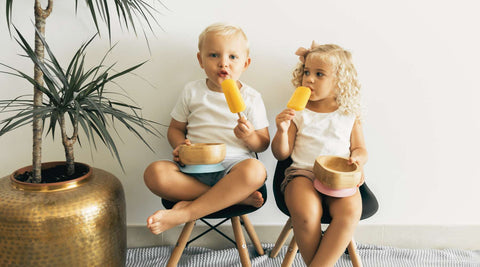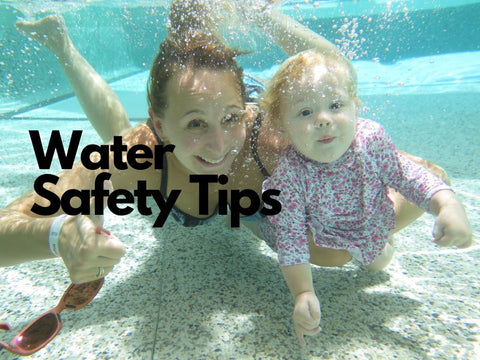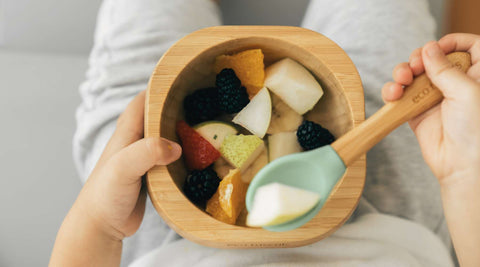How can I keep my toddler hydrated?
Make sure your toddler is drinking enough water with our top tips.
As the hot summer months roll in, it's crucial to prioritise hydration for everyone, especially our little ones. Toddlers are more susceptible to dehydration due to their smaller body size and higher water needs. In this blog post, we'll explore the importance of keeping toddlers hydrated and provide practical tips to ensure they stay healthy, active, and hydrated throughout the hotter summer days.
Maintaining proper hydration is vital for toddlers due to several reasons:
- Temperature Regulation: Young children are more prone to overheating as their bodies struggle to regulate temperature efficiently. Ample hydration helps their bodies cool down and prevents heat-related issues.
- Physical Activity: Toddlers are naturally active and energetic, which leads to increased perspiration and fluid loss. Staying hydrated ensures they have enough energy for play and reduces the risk of fatigue and muscle cramps.
- Cognitive Function: Dehydration can affect a child's cognitive abilities, including concentration, attention span, and memory. By keeping them well-hydrated, we support their optimal cognitive development.
- Digestive Health: Sufficient hydration aids digestion, preventing constipation and promoting regular bowel movements, which is essential for a toddler's overall well-being.

Water is the best option
Naturally, water is the healthiest, most important source of hydration. Once your little one starts to eat solid foods, you can begin to offer them sips of water. From the ages of 1 to 3 years, the NHS recommends 1 litre of fluids per day – preferably water.
While juice, squash and fizzy drinks can be more tempting for little ones, try to offer water more often than these high sugar options. Sugary drinks can lead to tooth decay and other health problems, so should be limited. Water, on the other hand, is essential for the proper functioning of the body, and helps regulate body temperature, digestion and metabolism.
Offer fluids frequently
Toddlers have small stomachs and may not be able to drink large amounts of fluids in one sitting. Therefore, offer drinks frequently throughout the day. Provide them with a cup of water at mealtimes, and take a bottle with you when you’re out and about.
Though you should try to avoid sugary drinks, there are other ways of getting fluids into your child’s diet. In addition to drinks of water, you can offer your little one milk or milk-based drinks, as well as healthy homemade smoothies or soup.
Foods with high water content can also help your toddler stay hydrated. Nature’s gifts, such as watermelon, cucumbers, oranges, and strawberries, have high water content and can make delicious snacks too.
Be a role model
Children learn by observing so ensure you actively keeping yourself hydrated throughout the day. Show your toddler that you are drinking water and be vocal about it to encourage mimicking behaviours.
Use the right cup

As your little one grows, they’ll be learning how to use different utensils and objects. The kind of cup you hand your child can have a massive effect on whether they’ll drink out of it. Starting with a non-spill sippy cup will be much easier (and less messy) in those early months of weaning. However, the sooner you can get your baby to use an open cup, the better their dental health and development will be.
Our bamboo cups are available with sippy feeders or straws, keeping little ones hydrated as they grow. The detachable silicone lids can also easily transform it into an open cup. The straws, like the cups themselves, are made from bamboo, making them safer for the environment than plastic, and longer lasting than paper. Check out our shop to find out more!
Watch for signs of dehydration
Dehydration can occur quickly in toddlers, particularly if the weather is hot or you’re heading outside. Keep an eye out for warning signs of dehydration, and offer fluids immediately to avoid serious health issues. According to the NHS, signs of dehydration include:
-
Dry mouth
-
Few or no tears when crying
-
Peeing less often, or dark yellow pee
-
Fewer wet nappies
-
Drowsiness and irritability
By implementing these tips and making hydration fun, we can ensure our little ones stay hydrated, healthy, and active all summer long. Remember, a well-hydrated toddler is a happy and thriving toddler!





Comments (0)
There are no comments for this article. Be the first one to leave a message!